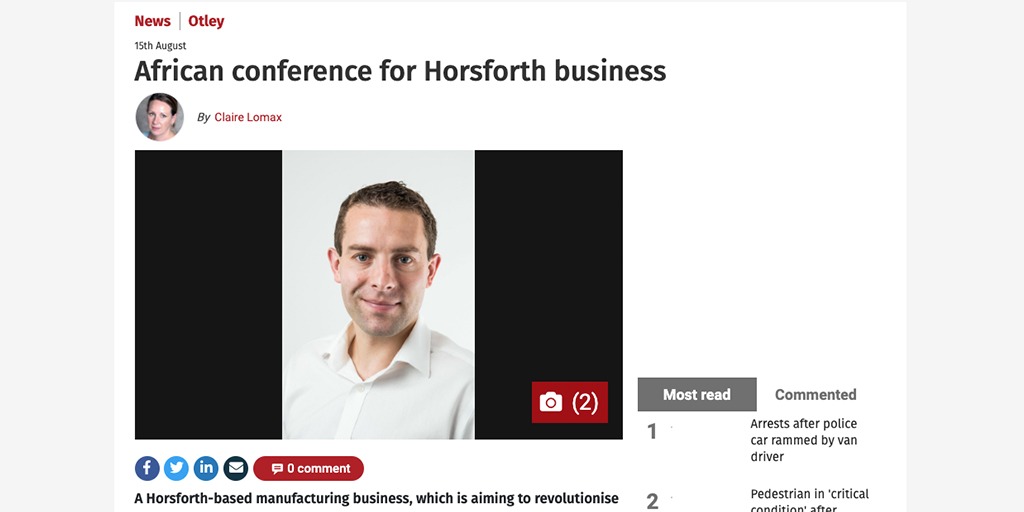Fizz-retaining technology could reduce waste
Posted in Press Mentions
New bubble technology has the potential for manufacturers to reduce waste by retaining carbon dioxide in drinks for longer.
Drinks brands and manufacturers from Nigeria, Tanzania, Uganda, and South Africa were shown evidence of the scale of the problems facing their sector and how carbon dioxide loss in soft drinks can be exacerbated by various factors ranging from temperature, material and density of packaging, agitation and time at a recent conference.
The developers of CO2Sustain, a patented solution that helps makers of carbonated drinks keep the fizz in their products for longer, has been demonstrating its innovative bubble technology to an audience of soft drink manufacturers from across sub-Saharan Africa who gathered for the conference in Johannesburg, South Africa.
The new technology aids in retaining the CO2 content and extending the shelf life of carbonated drinks in PET bottles.
“Our first South Africa summit proved a resounding success attracting some of the world’s leading drinks brands that are keen to reduce the amount of CO2 lost from their products during the production process,” said Jonathan Stott, business manager for CO2Sustain. “With temperatures rising around the world and users of plastic packaging facing pressures to reduce consumption of non-biodegradable materials, the timing could not have been more perfect for CO2Sustain to step in and mitigate these factors’ positively impacting on the popular beverages of some of the world’s leading drinks brands.”
The CO2Sustain team has pioneered the preservative-free, liquid processing aid to retain the CO2 content and extend shelf life of carbonated drinks in PET bottles, using an exclusive patented formulation.
“The ongoing issue of rapid carbonation loss in drinks is a problem faced by manufacturers across the world but made significantly worse when producing and distributing in hot climates, where PET bottled drinks are in highest demand. Increased temperatures make the problem of carbon dioxide loss even harder to control,”
added Scott.
“The manufacturers we are working with benefit from less waste, lower energy bills, increased product lifespan and improved profitability regardless of location and external influences.”




